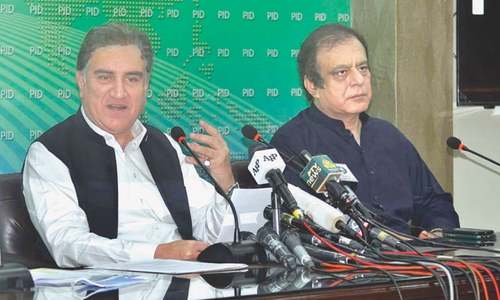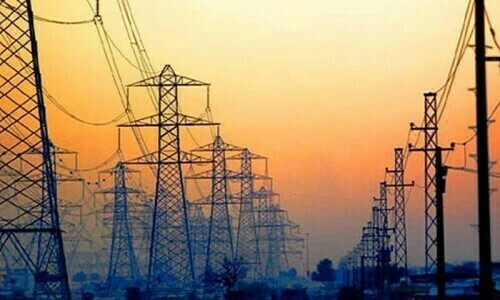The scars of last summer remain in Soura, an enclave that became a symbol of occupied Kashmir’s resistance to India’s central government a year ago on Wednesday.
Coils of concertina wire, remnants of makeshift road blocks, lie close to the broken tar of roads dug up to keep the security forces of Prime Minister Narendra Modi out of this area of 15,000 people in occupied Kashmir’s main city of Srinagar.
A year after stripping occupied Kashmir of its autonomy, Modi’s government has prevented widespread protests and violence, with a heavy hand on people who for weeks had barricaded themselves in and staged protests, hurling stones at federal troops armed with pellet guns and tear gas.
Security forces eventually broke through.
But local politicians warn that anger is rife with young men still picking up arms — and stones.

This Himalayan region has been at the heart of tensions between Hindu-majority India and Muslim Pakistan for decades, the cause of two of the three wars between the nuclear-armed neighbours. Both countries claim the region in full, but each rules only in part.
On Aug 5, 2019, Modi split the state of occupied Jammu and Kashmir into two federally controlled territories and took away its special privileges, saying this was necessary to better integrate the region with the rest of India.
New Delhi flooded troops into the Muslim-majority valley, where armed Kashmiris have struggled since the 1990s. India detained thousands, imposed harsh movement restrictions and forced a communications blackout.
Many of those measures have since been eased, but the internet remains throttled and a subsequent Covid-19 lockdown — India has the world’s third-highest coronavirus infections and rising fast — has forced millions of Kashmiris to stay in their homes for 12 months.
“The government said that they did it for the good of Jammu and Kashmir. What good things have happened since then? They have destroyed our economy,” said Mohammad Yusuf Tarigami, a former lawmaker. “Where is the development?”
Read: One year on, India's lockdowns ruin occupied Kashmir's economy
Modi’s government says it has undertaken reforms but that the pandemic, hitting occupied Kashmir hard like the rest of India, got in the way.
Reforms include legal changes to help non-Kashmiris who can now apply for government jobs and secure seats in colleges for their children, 10,000 new government jobs, extending federal schemes to the territory and bolstering the village-level administrative system.
“We have to try and win public sentiment,” a government official told Reuters, adding there is a push to improve roads, water and electrification.

Indian occupied Jammu and Kashmir police chief Vijay Kumar said security forces had kept up the pressure on the uprising, killing 138 fighters in the year to July, slightly more than the 129 killed in the same period last year.
Still, officials express concern that there is little sign of a let-up in disaffected youth joining the armed revolt.
This year around 60 new recruits have joined the groups through July, compared with 80 for the same period last year, according to a government estimate.
“The challenge would be how do we tamp down the recruitment,” the government official said.
Symbol of resistance
Two of Fatima Wani’s three sons have found little work as labourers in the past 12 months, making it difficult to make ends meet.

But the 62-year-old housewife’s worry is with her eldest son, picked up for allegedly taking part in a protest and booked under the Public Safety Act, which allows for detention for up to two years without charge.
About 150 people arrested last year are still detained, two-thirds of them charged under the law, according to government data.
Wani said her family had to sell a cow to pay for their travel to the northern town of Agra to meet her son in prison.
“He is innocent,” she said, tears rolling down her cheeks. “I want justice.”
Police chief Kumar said arrests had been made of stone-throwers and associates of fighters trying to stir up violence in the streets, some of whom had been booked under the security act.
In Soura, the indignation remains. A young man, who gave his name as Sahil and claimed he had been detained three times by police for clashing with troops, said he wasn’t going to back down.
“We are being suppressed, and I will fight against that suppression in whatever way I can,” he said. “I will continue stone pelting.”











































